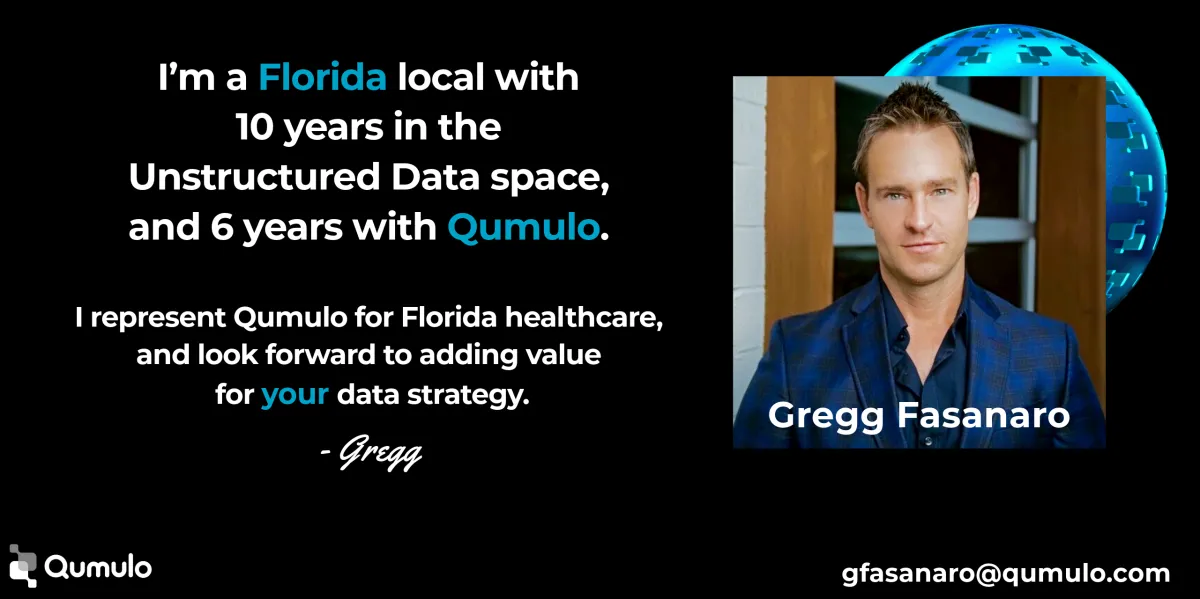












Break Free
Unlock your Agility
Rigid storage is killing Healthcare agility
and holding you back.
A distributed healthcare team requires access to data fast and from anywhere,
...but inflexible storage design has chained you to a model.
A multi-platform model that locks your data in silo's and
disconnects the datacenter from cloud elasticity, AI and agility.
Slowing care innovation while increasing your
complexity, cost, and risk.

Break Free

Unlock your Agility
Rigid storage is killing Healthcare agility
and holding you back.
A distributed healthcare team requires access to data fast and from anywhere,
...but inflexible storage design has chained you to a model.
A multi-platform model that locks your data in silo's and
disconnects the datacenter from cloud elasticity, AI and agility.
Slowing care innovation while increasing your complexity, cost, and risk.
Accelerate Care with One Platform. Any Scale. Everywhere Access.
Accelerate Care with One Platform. Any Scale. Everywhere Access.
Shatter Healthcare Silos
Shatter Healthcare Silos
Powering Next-Gen Healthcare with Seamless Data Access
Powering Next-Gen Healthcare with Seamless Data Access
Unify. Consolidate. Accelerate.
Unify. Consolidate. Accelerate.
Drive Down the Cost of PACS/VNA & Telehealth
Rapid time-to-first image for clinicians with sub-millisecond latency
Reduce TCO with a centralized storage pool for all PACS and PACS VNA workflows.


Deliver Fast & Secure EHR
Consolidate all Epic BLOB data to boost uptime and access.
Accelerate research pipelines with cloud-native AI/ML tools
Optimize TCO with a reduced data storage footprint.
Power Precision Medicine,
Research & AI Now.
Consolidate data across all projects into a single storage pool.
Turn the "AI Journey" into AI Now, with
unmatched cloud elasticity and savings, coupled with on-prem flexibility.


Drive down cost of PACS & VNA
Rapid time-to-first image for clinicians with sub-millisecond latency
Reduce TCO with a centralized storage pool for all PACS and PACS VNA workflows.

Fast & Secure EHR
Consolidate all Epic BLOB data to boost uptime and access.
Accelerate research pipelines with cloud-native AI/ML tools
Optimize TCO with a reduced data storage footprint.

Power Precision Medicine & Research
Consolidate data across all projects into a single storage pool.
Blend performance and great economics in a platform simple enough for non-technical staff.
Next Gen Health...Anywhere
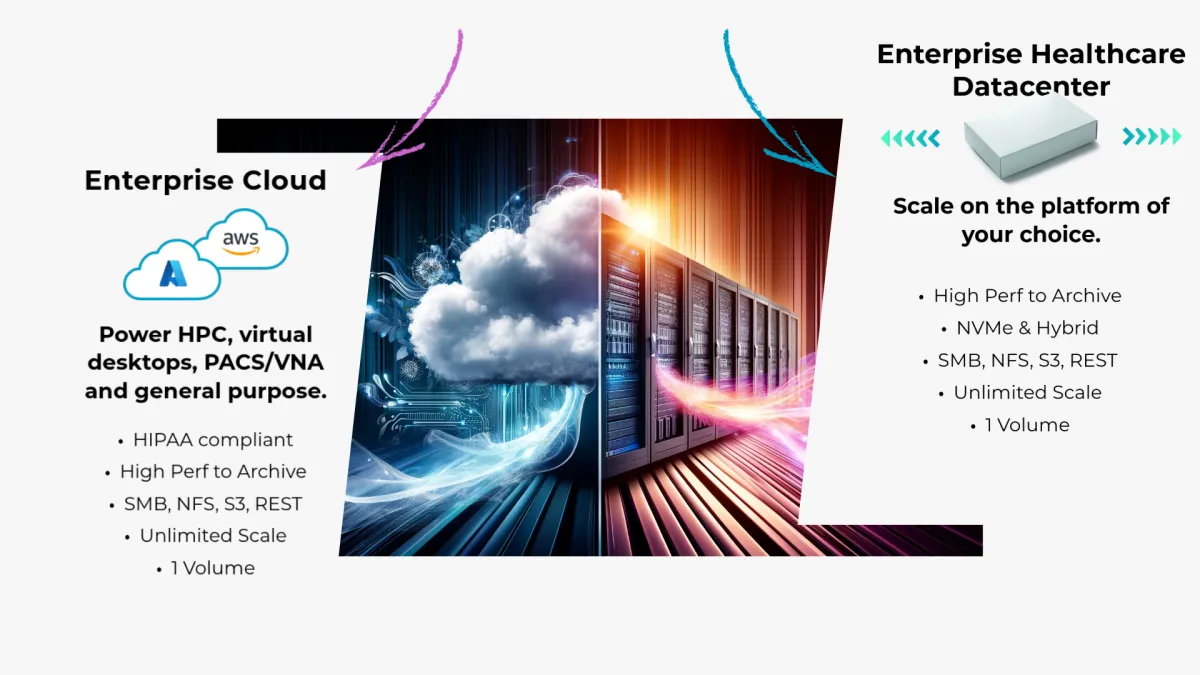
Next Gen Health... Anywhere
The Keys

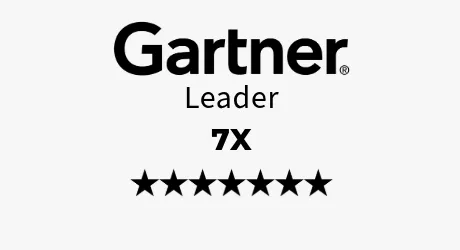



Unify. Accelerate. Transform.
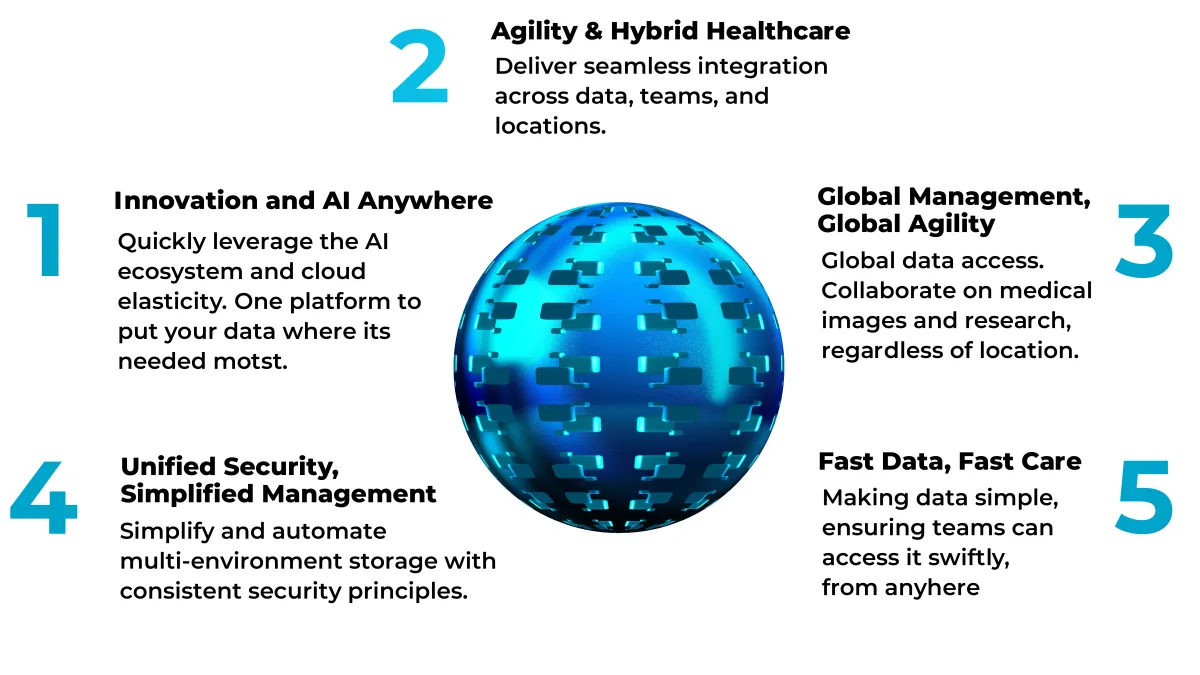

Unify. Accelerate. Transform.
5 Healthcare Data Outcomes
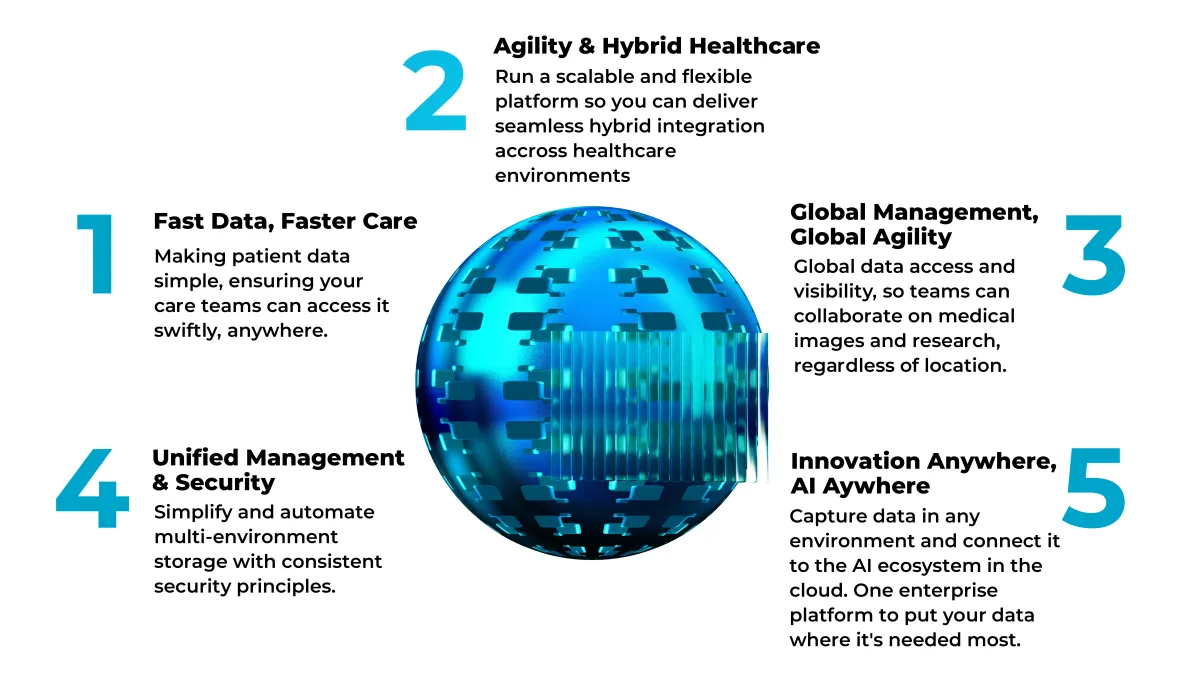
See what others are saying
"The global namespace is going to allow us unfettered access to any files, no matter where they are stored.
We dont want to pay the cost of on-premis storage to archive. Qumulo delivers on the promise of truly less expensive cloud storage grabs files when they are needed."
-Dayton Children's Hospital
"Retrieving long term archival radiology images is so much faster on the Qumulo than it was with Isilon. The radiologists actually noticed and asked what we had done.
The ability to go out to the cloud when we need it is going to be really important moving forward."
-Lexington Medical Center
See what others are saying
"The global namespace is going to allow us unfettered access to any files, no matter where they are stored.
We dont want to pay the cost of on-premis storage to archive. Qumulo delivers on the promise of truly less expensive cloud storage grabs files when they are needed."
-Dayton Children's Hospital
"Retrieving long term archival radiology images is so much faster on the Qumulo than it was with Isilon. The radiologists actually noticed and asked what we had done.
The ability to go out to the cloud when we need it is going to be really important moving forward."
-Lexington Medical Center
Remote data, local access.
Remote data, local access.
Global Healthcare Namespace
Power your healthcare data to be accessible to any user, on-prem, edge and cloud. Users and apps can instantly access new or archived data from any location.
Archived patient and research data remains fully accessible, driving faster outcomes.
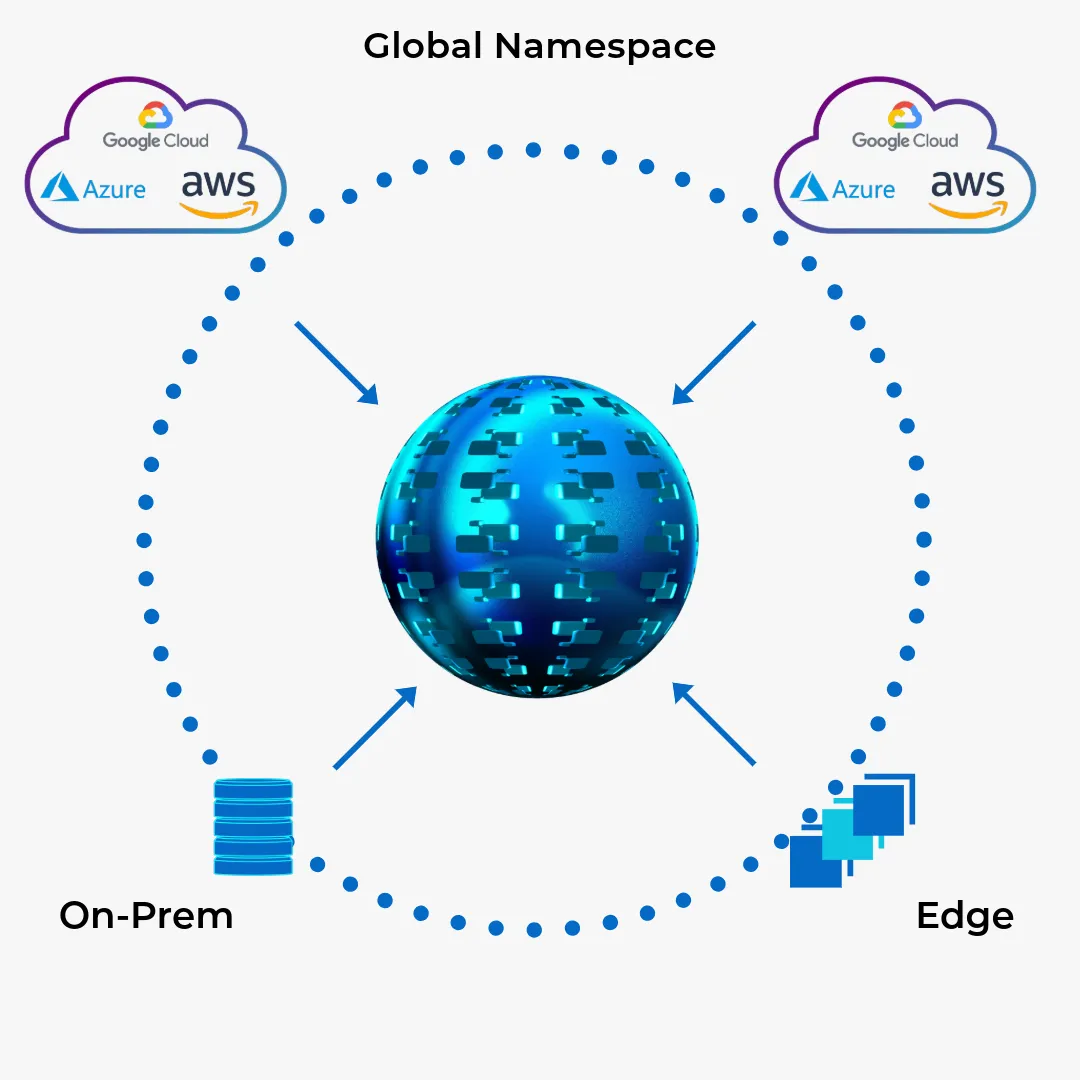
Cloud file storage was broken
...so we fixed it.

Drive Faster Patient Outcomes
and Discovery.
Quickly deploy and leverage Cloud Elasticity with the features, performance and scale of an enterprise platform.
Power any unstructured data workload in the cloud, from high performance to archive, architected for a TCO comparable or better than on-prem.
Accelerate your transformation with the only enterprise level cloud platform.
Data Center Flexibility
Scale your agility and
your leverage.
Flex your new software driven agility and choose the platform that aligns with your scale, performance and procurement.
Rapidly adopt new hardware innovation that drives better outcomes and lowers costs.
X86 and ARM Hardware Flexibility

Global Healthcare Namespace
Power your healthcare data to be accessible to any user, on-prem, edge and cloud. Users and apps can instantly access new or archived data from any location.
Archived patient and research data remains fully accessible, driving faster outcomes.

Cloud file storage was broken
...so we fixed it.

Drive Faster Patient Outcomes and Discovery.
Quickly deploy and leverage Cloud Elasticity with the features, performance and scale of an enterprise platform.
Power any unstructured data workload in the cloud, from high performance to archive, architected for a TCO comparable or better than on-prem.
Accelerate your transformation with the only enterprise level cloud platform.
Data Center Flexibility
Scale your agility and your leverage.
Flex your new software driven agility and choose the platform that aligns with your scale, performance and procurement.
Rapidly adopt new hardware innovation that drives better outcomes and lowers costs.
X86 and ARM Hardware Flexibility

“On prem vendors are too limited in the cloud, and expensive cloud solutions are too immature for the enterprise.”
Then there's Qumulo
“On prem vendors are too limited in the cloud, and expensive cloud solutions are too immature for the enterprise.”
Then there's Qumulo

The Innovation Leader
Qumulo named a 7X Leader
in the 2024 Gartner® Magic Quadrant™
for Distributed File Systems
and Object Storage.
Qumulo named a 7X Leader
in the 2024 Gartner® Magic Quadrant™
for Distributed File Systems
and Object Storage.


Zero Latency Support
Enjoy a superior experience and find out why our customers have rewarded us with the highest net promoter scores (NPS) in the storage industry.
Zero Latency Support

Enjoy a superior experience and find out why our customers have rewarded us with the highest net promoter scores (NPS) in the storage industry.
See what Healthcare agility could do for you
See what Healthcare agility could do for you
